In today's digital age, protecting our privacy has become a paramount concern for many of us. With the increasing number of personal data breaches and privacy violations, it's essential to know how to voice your concerns effectively. Drafting a complaint letter can be a powerful way to address these issues and seek resolution. Let's dive into the key elements you should include in your letter to ensure your complaint resonatesâread on to learn more!
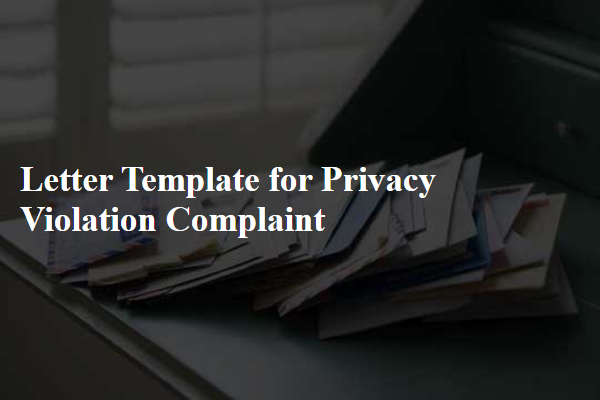
Clear Identification of the Issue
Data breaches can severely impact individuals and organizations, leading to unauthorized access to sensitive information. High-profile incidents, such as the 2017 Equifax breach affecting 147 million people, have raised awareness about the importance of data protection. The exposure of personal details, including social security numbers and financial data, can result in identity theft and severe financial ramifications. Regulatory bodies, such as the Federal Trade Commission in the United States, enforce privacy laws to address violations and protect consumer information. Inadequate security measures, like weak encryption protocols and unpatched software vulnerabilities, contribute significantly to these privacy violations, prompting a need for stricter regulations and heightened awareness regarding data security.
Comprehensive Incident Description
A comprehensive incident description of a privacy violation involves outlining critical details such as the date and time of occurrence, the specific nature of the breach, involved parties, and potential impacts. For instance, on September 15, 2023, at approximately 2 PM, a data leak occurred within the database of XYZ Corporation, located in New York. Sensitive personal information, including names, email addresses, and social security numbers of over 1,500 customers, was accessed by an unauthorized user due to inadequate encryption measures. This vulnerability exposed individuals to identity theft risks, resulting in potential financial harm and emotional distress. The incident highlights the urgent need for enhanced security protocols to protect private data effectively.
Specific Privacy Laws Breached
Individuals experiencing privacy violations can identify specific laws that may have been breached. The General Data Protection Regulation (GDPR) in Europe sets strict guidelines for data protection and privacy, granting individuals rights such as access, rectification, and erasure. The California Consumer Privacy Act (CCPA) offers similar protections in the United States, allowing consumers to know what personal data is collected and to whom it is sold. The Health Insurance Portability and Accountability Act (HIPAA) protects patient information in healthcare settings, ensuring confidentiality and security of personal health information. Additionally, various laws exist at the state level, such as data breach notification laws requiring entities to inform individuals of unauthorized access to their personal data, impacting consumer trust and safety.
Expressed Expected Resolution
A privacy violation complaint should outline specific details regarding unauthorized access or misuse of personal data. For instance, an employee might report a data breach incident occurring on January 15, 2023, where sensitive information was exposed by a third-party application provider. The affected individual's Social Security Number, home address, and financial records may have been compromised. Expected resolution measures might include immediate investigation of secure data handling procedures, implementation of stronger encryption methods, and provision of identity theft protection services to affected individuals. Furthermore, effective remedial actions could involve notifying affected parties within 30 days, along with transparent communication regarding the steps taken to prevent future breaches.
Contact Information and Signature
Contact information for filing a privacy violation complaint typically includes the complainant's full name, address, email address, and phone number. Signature at the end serves as an official confirmation of the complaint's submission, ensuring authenticity. Privacy violation cases often involve incidents such as unauthorized data access, identity theft, or lapse in data protection standards. Relevant entities may include corporations, government agencies, or social media platforms that have failed to safeguard personal information. The correct documentation helps in evaluating the seriousness of the violation and facilitates appropriate legal or remedial action.
Letter Template For Privacy Violation Complaint Samples
Letter template of privacy violation complaint to a school or university.
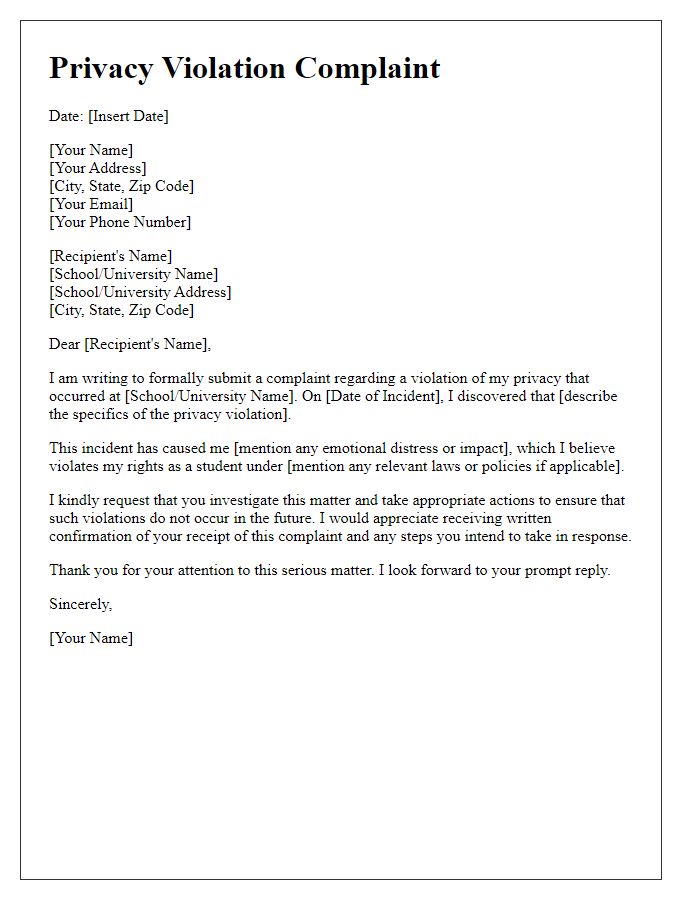
Letter template of privacy violation complaint for unauthorized photo use.
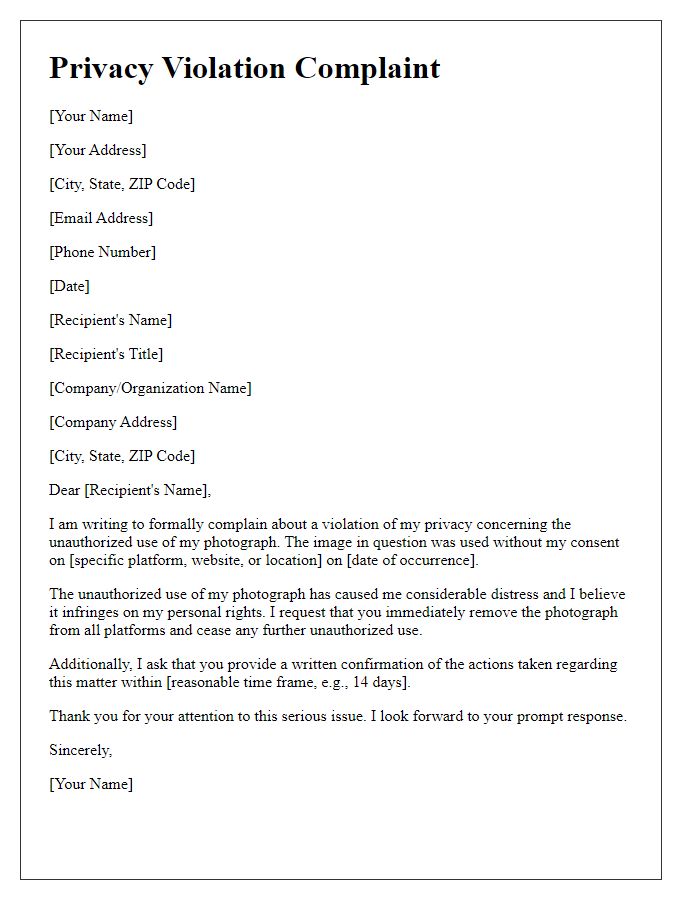

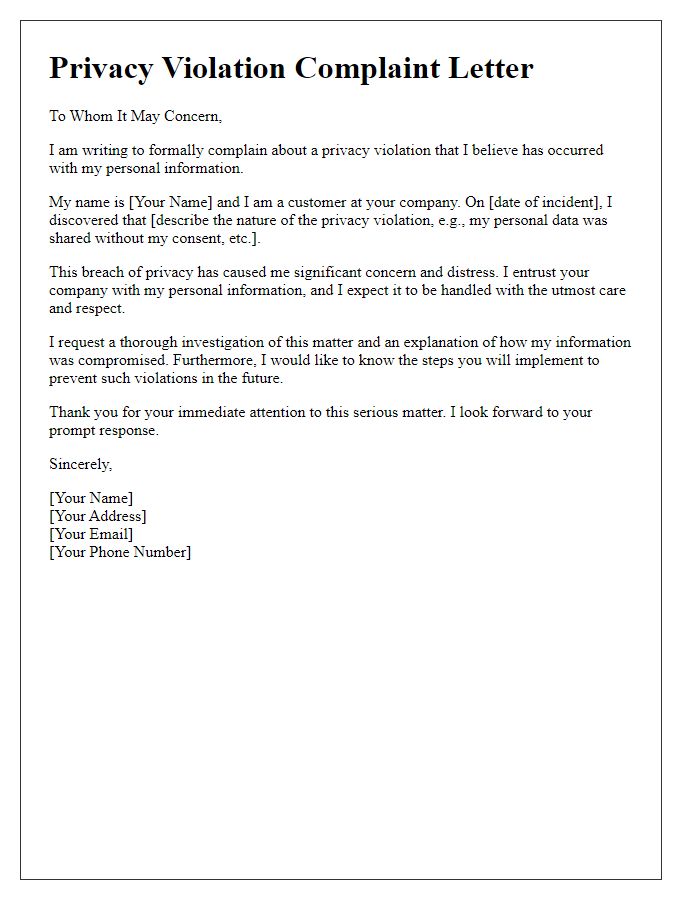
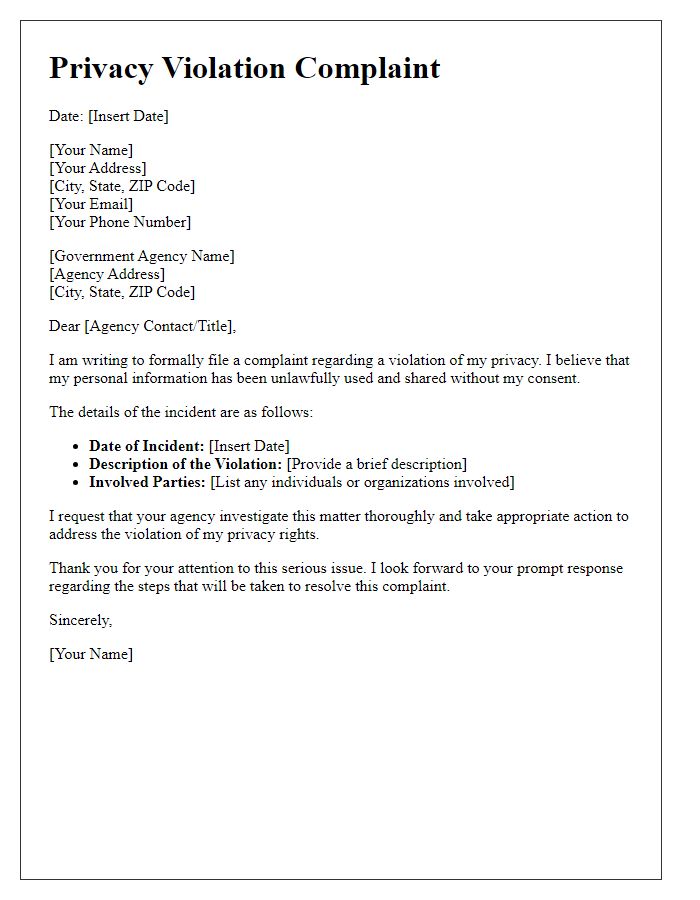
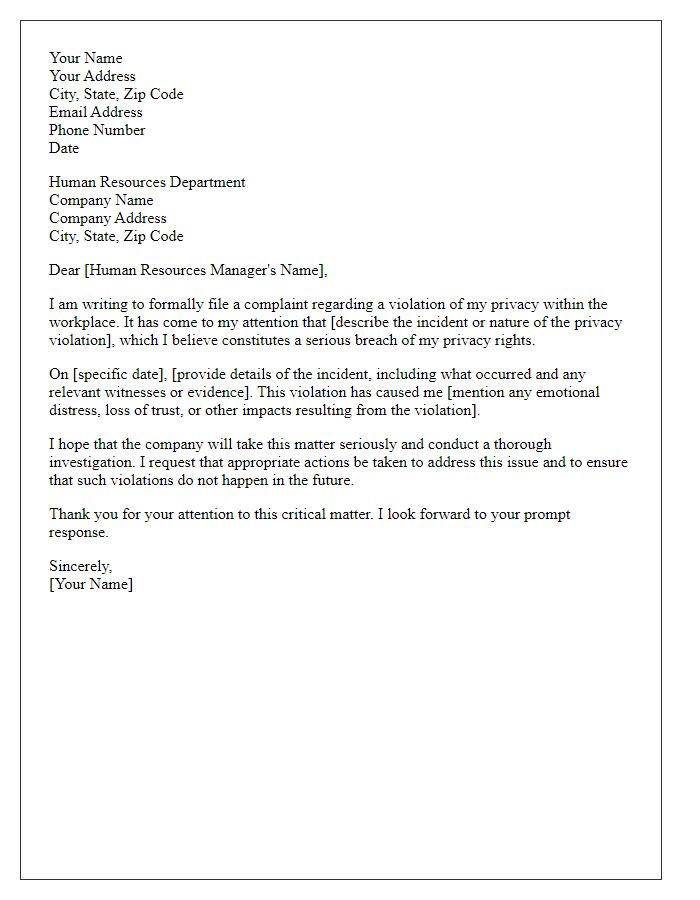
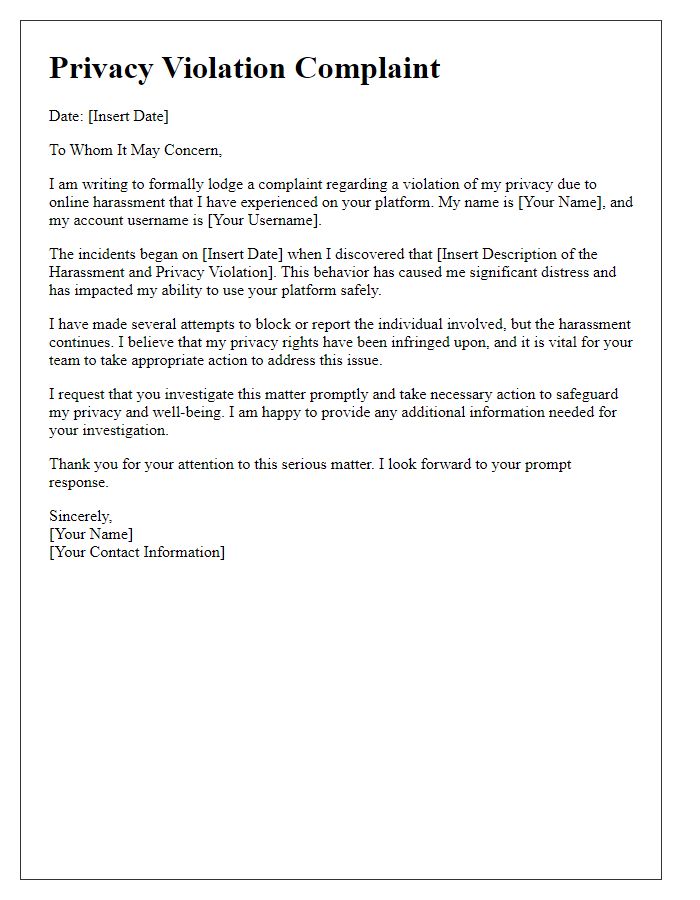
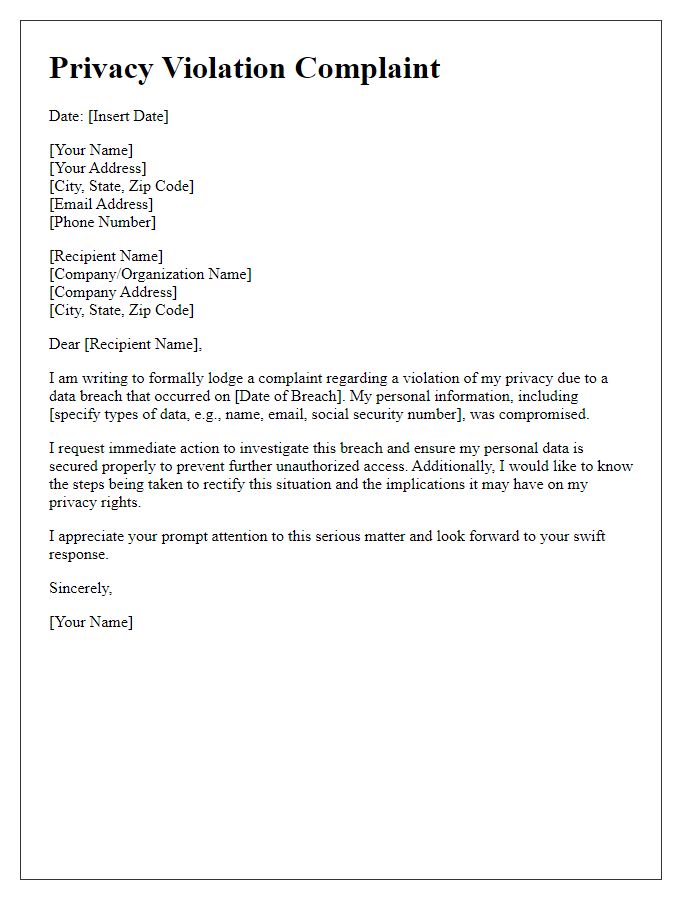
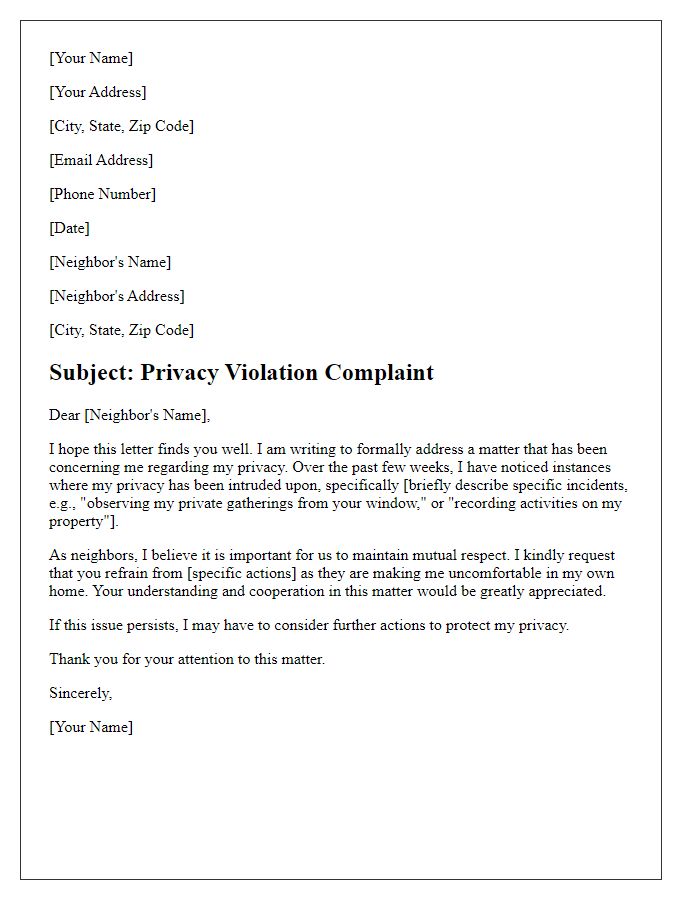
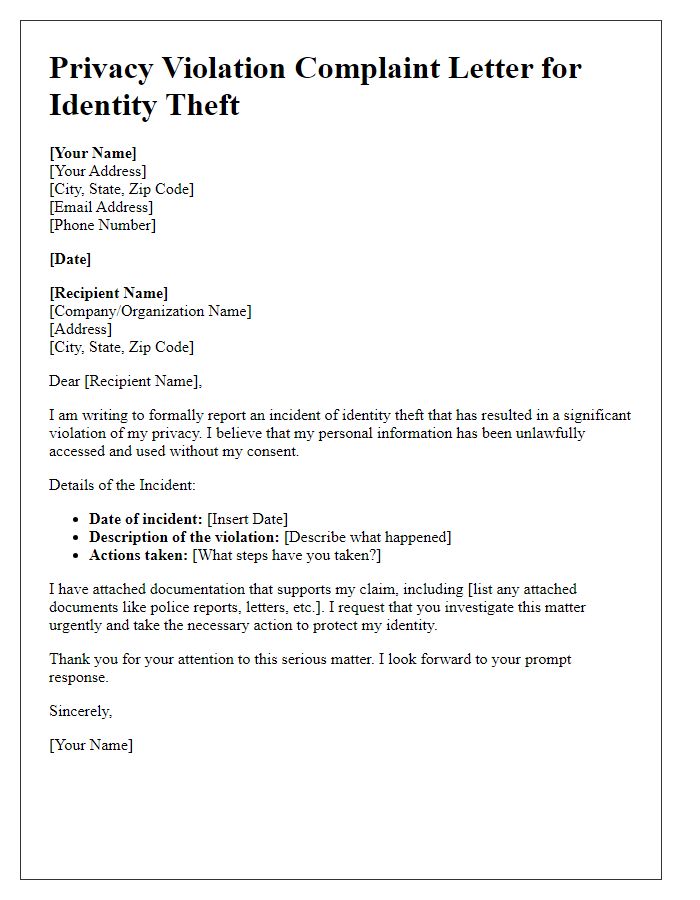
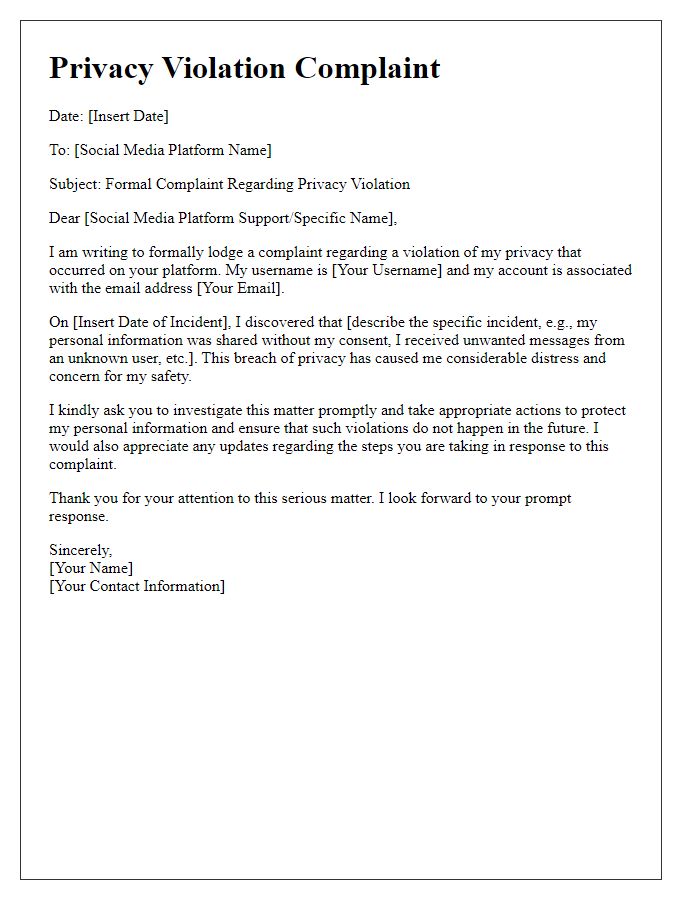

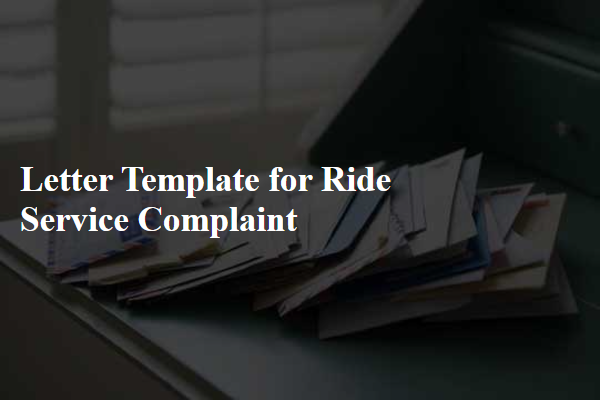
Comments